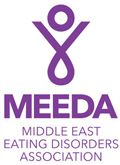If you are a mother or a child minder and, like me, found parenting made even trickier in the overall body hate atmosphere promoted by diet culture, here is a snapshot version of the many resources I found about this topic – especially from wonderful allies like Dana Suchow, Sonya Renee Taylor, Ellyn Satter, Lyndsay & Lexie Kite from Beauty Redefined and Dubai-based psychotherapist Carine el Khazen. (You can find more about all of these wonderful ladies in my Resources page or in my blog post about mental health resources in Dubai)
Remember you are your kids’ primary eating model. Avoiding to diet and allowing all foods is one of the best decisions you can make for them to become healthy, balanced eaters.
- No restriction (except for proven allergies of course) means that your kids won’t binge on candy or popcorn next time they’re out at a party
- Make food the fuel to live your life with joy and function, not something you ought to restrain or fear.
Encourage your child to find a physical activity they genuinely enjoy practicing
- It could be sports, but it could also be playing tag, building sandcastles or gardening. ANY movement is good, as long as your child enjoys it, because it will make the activity easily sustainable on the long term.
- Avoid the gym or personal training before 18 years old, as it can be damageable to your child’s growing body.
Avoid commenting on anyone’s body or appearance – including your own!
- Instead, comment on character, ability, kindness, wit.
- Use ‘fat’ as a neutral descriptor, like you would ‘blonde’ or ‘tall’. Remove the stigma associated with fat as a disparaging comment and don’t laugh at fat jokes.
Avoid the ‘good’ or ‘bad’ foods definition – all foods are morally neutral
- Instead, use ‘everyday’ vs ‘sometimes’ foods or ‘nutritious’ vs ‘fun’ foods
- Make ‘fun’ foods a daily occurrence in order to remove the attraction these can hold when restricted
Ban the ‘clean plate’ policy & teach embodiment instead
- Respect kids telling you they had enough to eat. Encourage them to recognize their natural hunger and fullness cues. Don’t make getting a dessert dependent on cleaning a plate.
- Recognize each child has his/her own appetite and eating cues, and avoid comparing between siblings.
Structure food in 3 meals and 2 snacks eaten as a family, at the dining table
- Discourage munching throughout the day or eating with distractions (especially screens)
- Consider Ellyn Satter’s division of responsibility in feeding that encourages parents to take leadership with the what, when, and where of feeding and let their child determine how much and whether to eat of what you provide.
Engage your child into conversations on media literacy from an early age
- When your child is old enough to read and be exposed to media and messages from the outside world (and diet culture), start educating him/her about the work that goes into creating imagery for media: photoshop, social media filters, etc.
- Remind them that appearance is only one facet of each complex personality, and certainly not the most important one
- Share inspirational stories of men and women doing extraordinary things in the world, regardless of their appearance. Books like ‘Good night stories for rebel girls’ or ‘Stories for boys who dare to be different‘. You could also look for specific themes and books on websites like www.amightygirl.com
Whatever you do, have compassion for yourself as a parent, and remember that whatever you may have done in the past, it is never too late to change and see results. Above all, what kids mostly need from you to grow healthy is to feel loved, accepted and safe.
Also, do reach out with your individual experiences. I am always interested to hear from other parents. Because at the end of the day, it does take a village!




